How Swiss experience is helping the US embrace apprenticeships
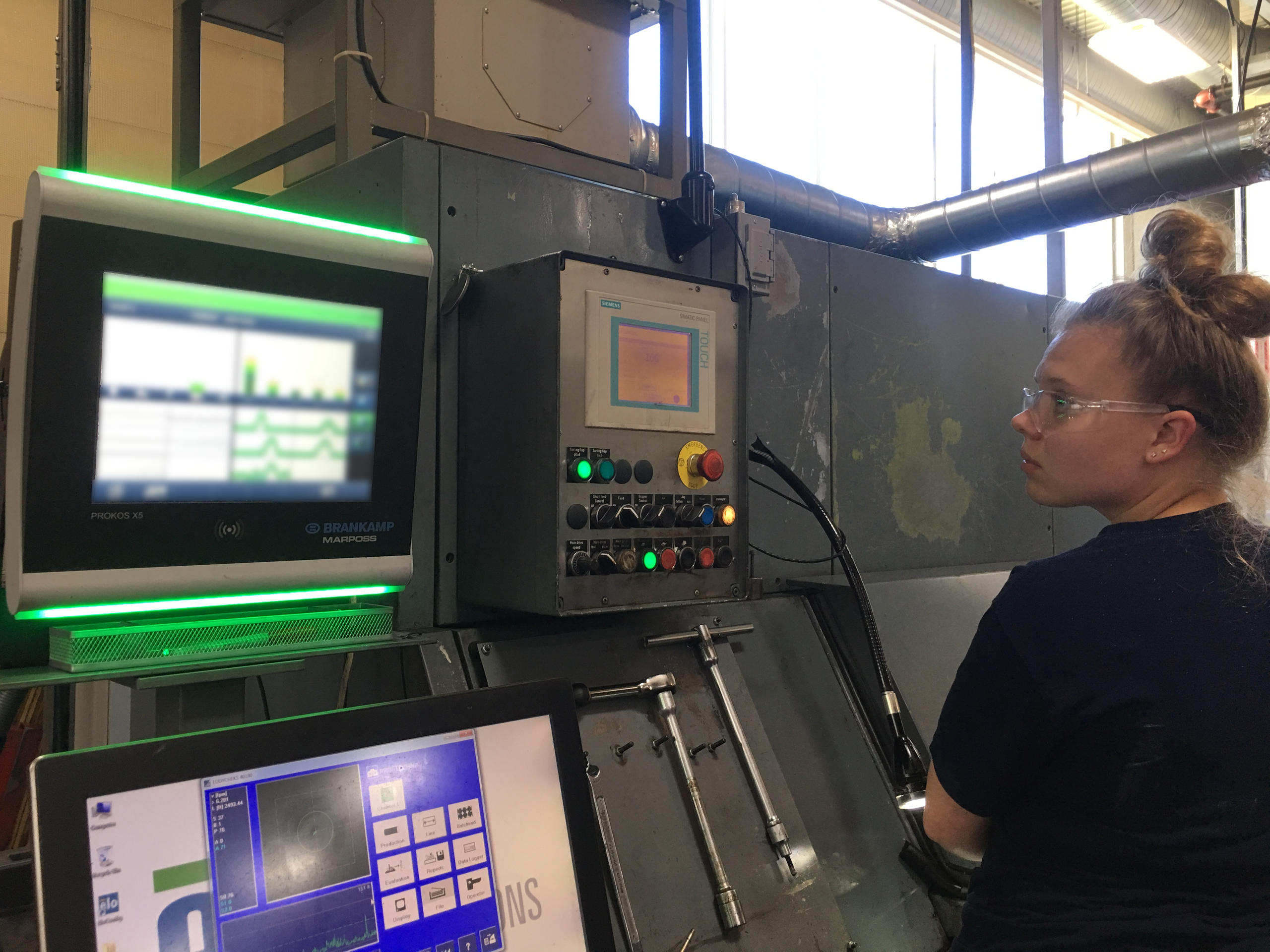
With an experienced hand, Sara Anderson leans over to reload a truck-sized machine on the manufacturing floor of SFS intec, a Swiss firm in the US state of Ohio. Just 19 years old, she’s a student-apprentice, part of a maturing effort in the United States to build a talented pipeline of workers for factories of the future.
“It’s a benefit for us as a Swiss company to be here in the US and find a new workforce,” says Simon Schmid. He’s the general manager for the automotive division of SFS intec, which produces small but vital metal components for automotive brake systems, ABS, engines, and more in the town of Medina, southwest of Cleveland.
Coming from Switzerland, Schmid and his company are steeped in the Alpine country’s long history of apprenticeship programmes that start students training in companies as early as 15 or 16. At that age, US students generally attend upper secondary schools based around classroom work and have fewer on-the-job training opportunities.
But apprenticeships are getting a serious re-think by American companies, schools, and governments to change perceptions about vocational training. Two years ago, US President Donald Trump announced his intention to create more apprenticeships with an executive orderExternal link pledging $200 million (CHF193.6 million) in funding. However, Politico recently reportedExternal link that the initiative had not created any new apprenticeships. The US Department of Labor is still in the process of distributing hundreds of millions of dollars in grantsExternal link to “close the skills gap” between worker abilities and job requirements.
In Ohio, not far from SFS intec, $12 millionExternal link of that grant money is heading to Lorain County Community College (LCCC) to help coordinate the scaling-up of Ohio experiments in apprenticeship programmes.
SFS intec has provided an example for the region for implementing apprenticeships. The company has adapted the Swiss model to fit the US education system: younger students can work as summer interns at first and later enter a programme where they go to school in the morning and work in the afternoon.
“Our mindset is already ahead of the game, so it’s easier for us to implement the programmes, and also find the right people,” Schmid says.
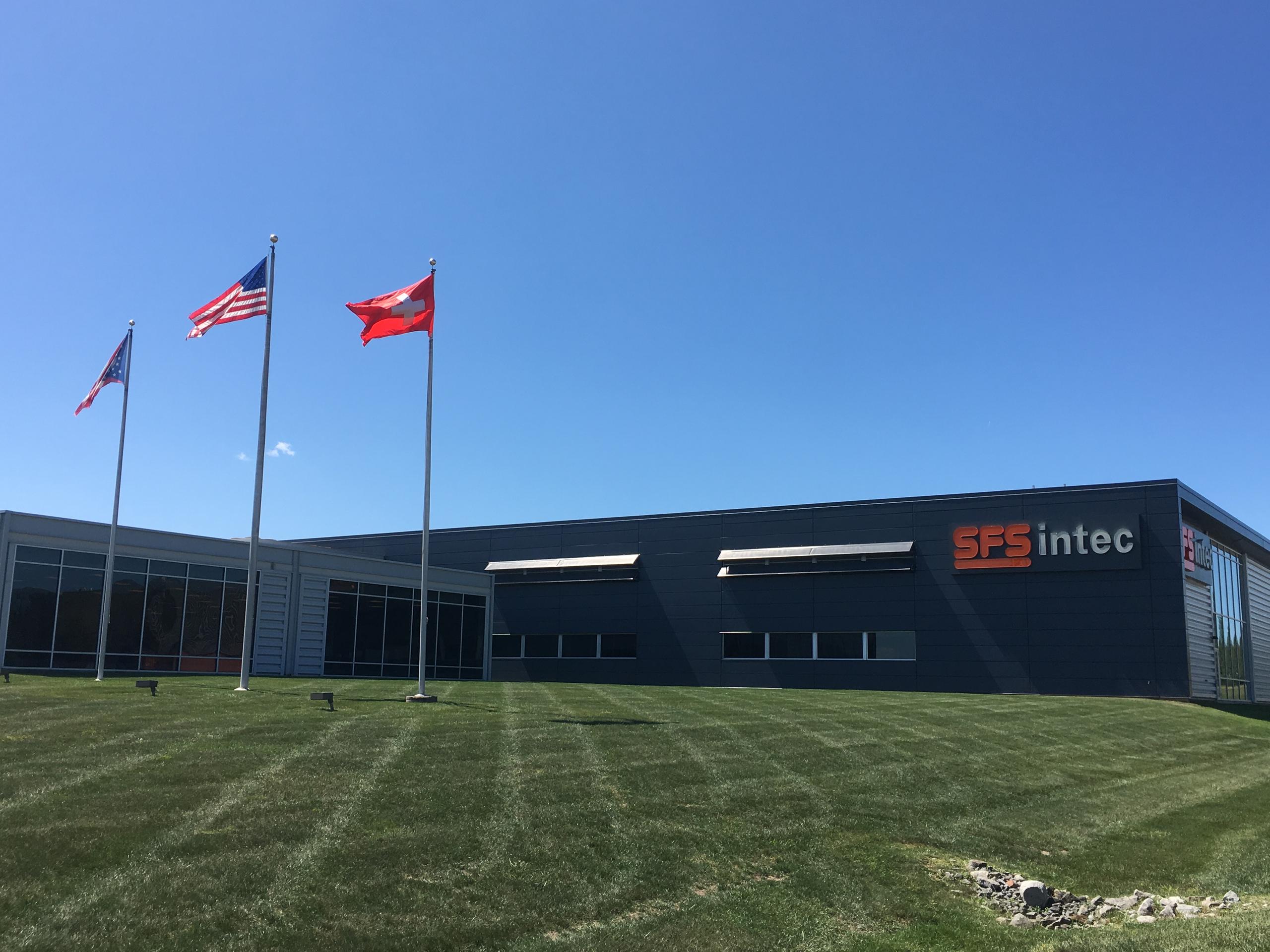
Degree while working
SFS intec is also working with the nearby University of Akron on an apprenticeship-to-degree program that allows students to gain technical skills while moving closer to a degree.
Terri Burgess Sandu, Director of Talent and Business Innovation at LCCC, says that Ohio’s efforts are heavily influenced by European apprenticeship models, seeking to allow students to earn credentials for skills learned through job training while earning credits toward a degree — much like what is happening at SFS intec.
“One of the big shifts has been the move toward competency-based education and validating those competencies through industry-recognised third-party credentials,” she says. “That’s a huge shift, and we have a ton of work to do yet to really catch up with what technology allows us to do.”
“We have been adapting the European model to Northeast Ohio for the past three years,” says Matthew Fieldman, Vice President for External Affairs at MAGNET, a Cleveland consultancy and non-profit involved in workforce training for manufacturing.
“We are absolutely at a tipping point for apprenticeships,” he says. “We had them a long time ago, but we moved away from them to this ‘college for all’. I think we as a society are realising that’s not really the best use of our money, it’s not the best fit for all students.”
Breaking old habits
Fieldman compares the institutions involved – such as community colleges and academia – to “aircraft carriers” that are difficult to turn around and pivot to new models. Those promoting apprenticeships are also dealing with cultural perceptions of what it means to have a stereotypically “dark, dirty and dangerous” manufacturing job, he says.
“Manufacturing is fighting against 20 years of misperceptions about what the trade actually is, what the jobs actually do.”
For SFS intec, the challenge rests in educating parents about the benefits of a system that can train a future engineer without requiring full-time university attendance. As it does in Switzerland, the company organises open days to let families tour the factory and learn about what’s possible.
“It’s really about breaking old habits,” says Eric Burkland, President of the Ohio Manufacturers’ Association. He says early successes will allow apprenticeship promoters to “evangalise” and that the grant funding for Ohio regions will help them do so.
One such early success is LCCC’s Micro-Electromechanical Systems degree, which grew from eight to 100 student apprentices in about three years, according to Burgess Sandu.
The community college is also pairing faculty with staff who can translate the nuts and bolts of what students are learning into a language that human resources staff at local companies can understand.
“The ability of a small company to run a registered apprenticeship program is limited, just because it takes a lot of internal capacity,” Burkland recognises. He believes the answer lies in providing “stackable, portable credentials and career pathways” that create an infrastructure outside of individual companies to support their needs.
The Manufacturers’ Association leader explains that Ohio has created so-called “industry sector partnerships” to fill that gap, connecting manufacturing leaders with educators, economic developers and social service agencies to support employers in offering apprenticeships regardless of company size.
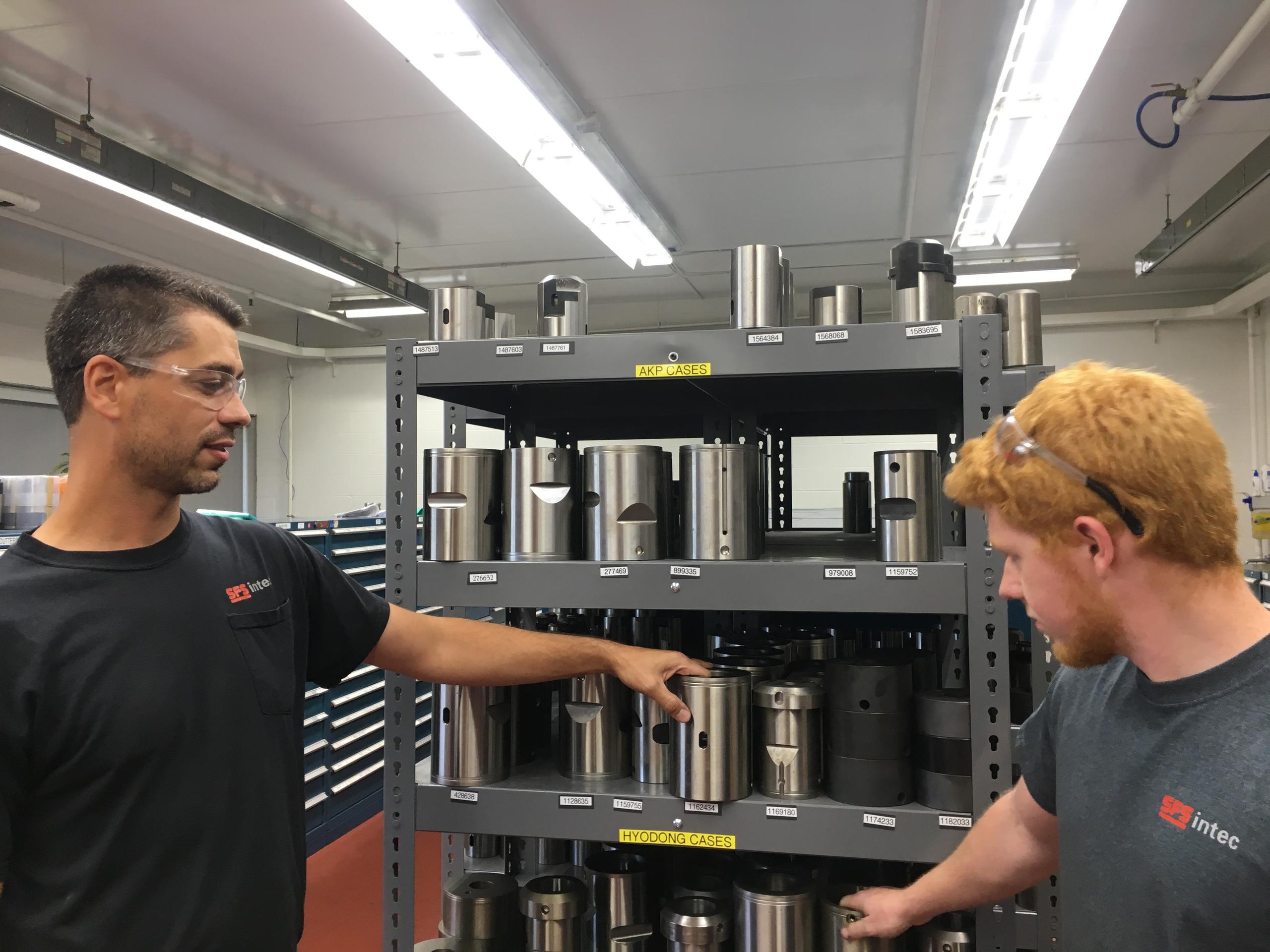
A new kind of gig economy
Employers’ investment in training apprentices may seem to go against the shared working spaces and quick employee turnover that are part of today’s so-called “gig economy”.
“Europe is ahead of us in employee loyalty and building a strong social contract between the employer and the employee,” says Fieldman of the MAGNET workforce training consultancy. “That is something we here in America are starting to realise we’re missing.”
He points out that while the gig economy can be great for people who like variety, it doesn’t work for everyone.
And Eric Burkland of the Manufacturers’ Association points out that modern apprenticeship training can also provide a kind of variety to fit what members of the millennial generation want out of a career.
“It’s focused on the individual learner, and individual worker, and his or her career pathways, and designing flexible learning and employment systems that meet their needs, regardless of their station in life.”
SFS intec offers its apprentices some of that flexibility by sending workers to its offices in Switzerland to see different facilities and share best practices with colleagues. Some 8% of staff at the Ohio branch are apprentices, out of about 185 employees.
American Andy Benne started as an apprentice with the Swiss manufacturer some 17 years ago and now helps coordinate job training for the company in Ohio. He says one of the biggest changes in apprenticeship training he’s seen over the years has been a more formalised structure for training American apprentices, customising the process for the local workforce.
“We’re trying to adapt some of the values of [Swiss companies],” Benne says. “Are we there yet? No. But we’re getting leaps and bounds closer.”

In compliance with the JTI standards
More: SWI swissinfo.ch certified by the Journalism Trust Initiative
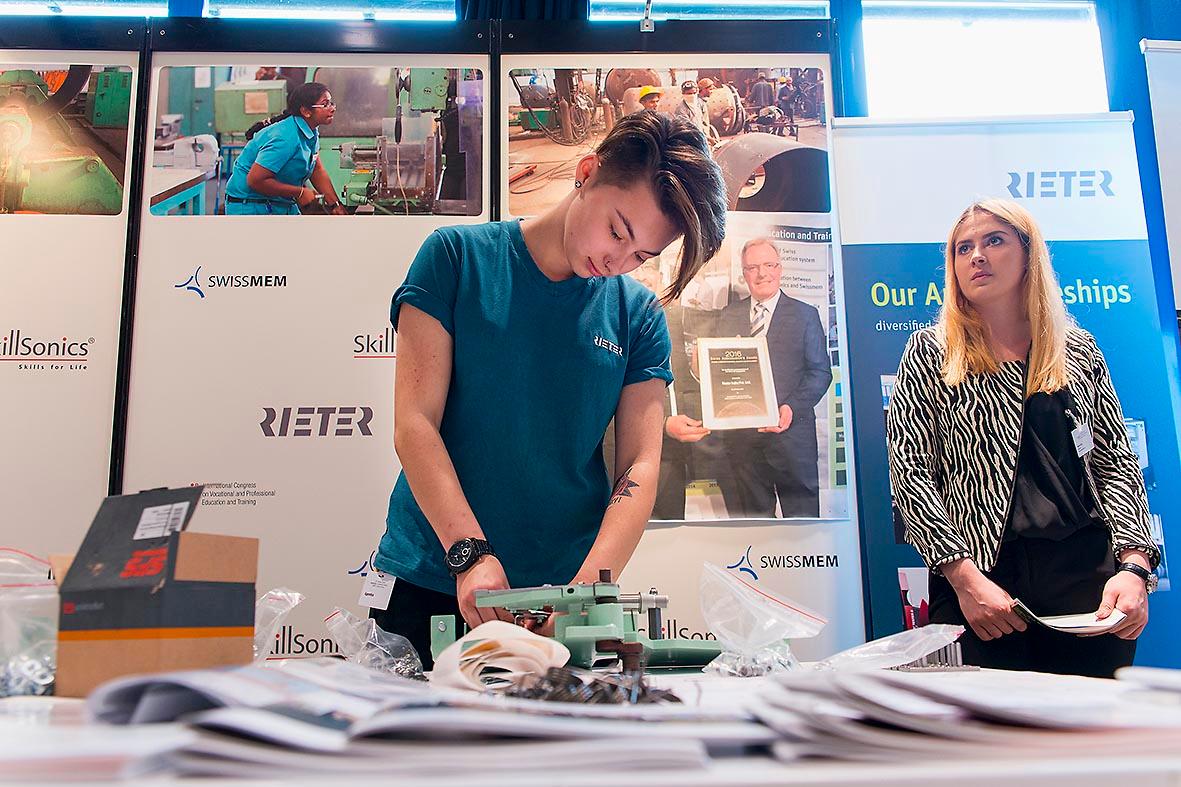
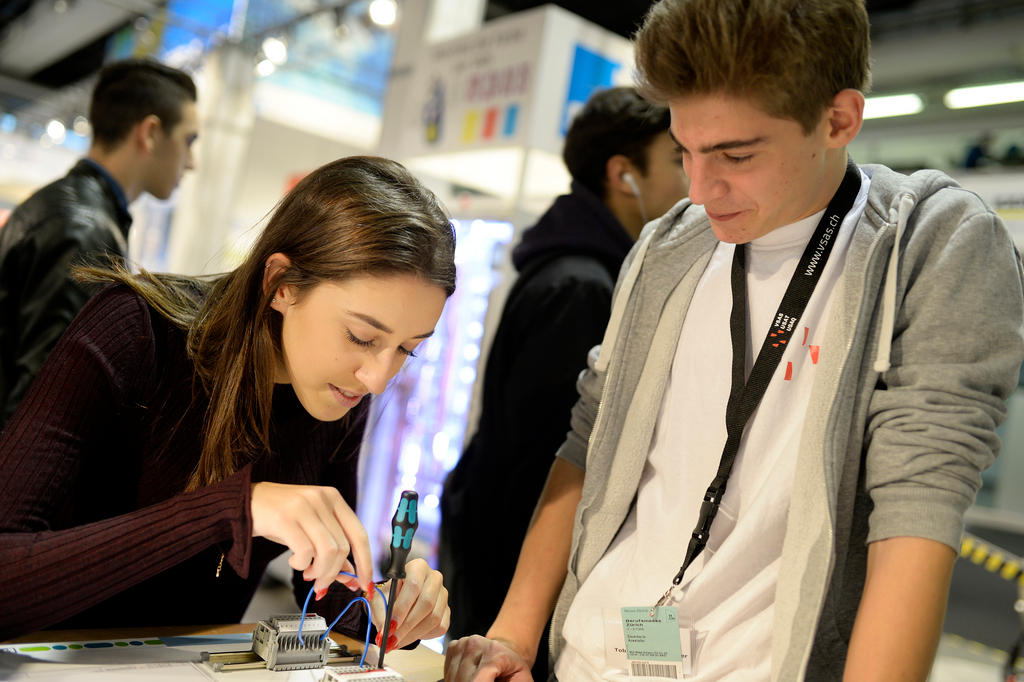

You can find an overview of ongoing debates with our journalists here. Please join us!
If you want to start a conversation about a topic raised in this article or want to report factual errors, email us at english@swissinfo.ch.